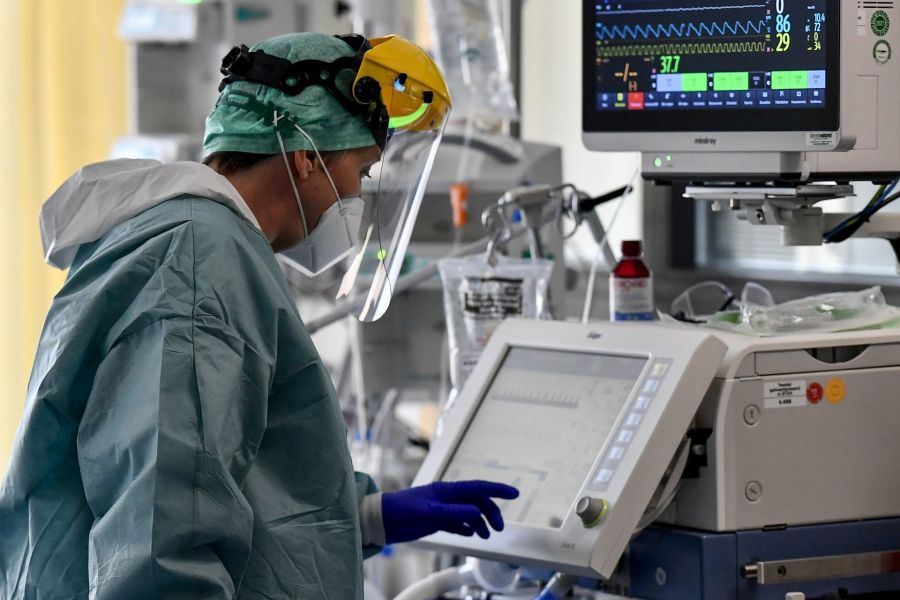The rapid increase in new coronavirus infections in Belgium is now clear to see in hospitals, as hospitalisations rise as well.
Between 29 December and 4 January, an average of 162 patients suffering from Covid-19 were admitted to hospitals per day – up 20% on the seven days previous, according to figures published by the Sciensano Public Health Institute on Wednesday morning.
On Tuesday, a total of 1,882 people were in Belgian hospitals due to an infection (16 more than on Monday), including 504 Covid-19 patients that were being treated in intensive care (-16), and 283 on a ventilator (-13).
Between 26 December and 1 January, an average of 11,132 new coronavirus infections were identified every day – up 79% on the previous seven days.
New rules to ease the burden
As a result of this rapid increase in Omicron cases, the government announced on Tuesday new quarantine rules to mitigate the economic fallout and pressure on test centres.
The average number of tests taken per day in the same period is slightly up from last week, sitting at around 67,022.1. However, the positivity rate has increased more rapidly, now 17.9% (+6.9%); it is expected to rise further.
The decline in deaths continues but more slowly: during the same period, an average of 24.3 Covid-19 patients died per day, down 28% since last week. Total deaths in Belgium since the beginning of the pandemic is 28,407.
Related News
- Throat swab would be better to detect Omicron variant, says Van Ranst
- Almost 700 Dutch people visited Belgium before testing positive
The reproduction rate (Rt) has shot up to 1.14. This figure represents the average number of people that contract the virus from each infected person, and when it is above 1, it means that the epidemic is gaining ground in Belgium.
The incidence (the number of new cases per 100,000 inhabitants) has risen to 1,054 over the past 14 days after dropping to just over 850 last week.
As of Monday, more than 8.8 million people are fully vaccinated – 88% of Belgium's adult population and 76% of the total population.
Meanwhile, more than 4.44 million people have received a booster dose of a coronavirus vaccine, representing 48% of over -18s and 39% of the entire population. The majority of adults should have had the opportunity to get a booster dose by March 2022.

